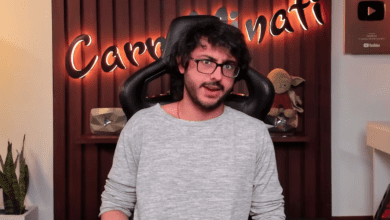YouTube to MP3 converter In an era where music is more accessible than ever, YouTube stands tall as a massive repository of melodies. For countless listeners and creators, this video-sharing platform is a treasure trove of audio, a virtual jukebox catering to every music preference. But with the convenience of YouTube comes a conundrum—how do you enjoy this wealth of music offline, without draining your data or draining your battery? The answer, for many, lies in the controversial realm of YouTube to MP3 converters.
The Charm of YouTube Music in The Digital Age
Before we plunge into the intricacies of YouTube to MP3 conversion, it’s worth noting why this online giant has become a primary music destination. YouTube offers an eclectic mix of songs, albums, live performances, and music videos, easily searchable and instantly available. Its algorithms seem to ‘get’ our musical tastes, and its social features allow users to create, share, and connect through playlists and comments. It’s not just a music archive; it’s a cultural hub, reflecting the pulse of society and the trending tunes of the moment.
However, the online nature of YouTube poses a practical limitation. For those who want to listen to their favorite tracks in the absence of Wi-Fi or a strong cellular connection, YouTube’s native functions are somewhat lacking. This lacuna in offline accessibility has led to the rise of the YouTube to MP3 converters, which to some are saviors, but to others are scourges.
Unpacking YouTube to MP3 Converters
A YouTube to MP3 converter is a tool that allows users to extract the audio content from a YouTube video and save it as an MP3 file—a universal audio format that’s playable on nearly all devices. The process is remarkably simple. You paste the YouTube video URL into the converter, it processes the content, and voila, you have converted a visual performance into a pristine audio file. This action, while undeniably convenient, has implications that transcend mere practicality.
The Legal and Ethical Quandaries
The major concern that hovers over YouTube to MP3 converters like a gray cloud is that of legality. When you convert a YouTube video into an audio format, you’re essentially making a copy of the audio, which by itself may infringe on the rights of the original content creator. The intricacies of copyright law come into play here, and in many jurisdictions, it’s a murky legal territory.
Even if the downloader doesn’t intend to redistribute the music or profit from it, the act of copying and using someone else’s content without explicit permission can be a breach of copyright. This is a delicate balance where the convenience and accessibility to music provided by converters are weighed against the rights of the creators. Ethically, it’s a matter of respect for artistic integrity and the digital economy of content creation.
Best YouTube to MP3 Converters of Today
For those who have made the choice to use YouTube to MP3 converters, the landscape is peppered with a variety of services. Some of these converters offer high-definition audio, others boast speed and ease of use, and a few even give users the capability to perform batch downloads. Below are a few converters that have established a strong presence:
- YTMate: Known for its simple and straightforward process, YTMate is favored for its speed and ad-free experience.
- 4K YouTube to MP3: A feature-rich converter that supports high-quality audio extraction and even has a built-in music player.
- OnlineVideoConverter: This web-based tool is popular for its compatibility with a range of video sites beyond YouTube and its variety of output formats.
Each of these services has its own unique selling points, but users must be wary of the terms of use and any potential legal implications associated with their chosen converter.
For Creators: Guarding Your Masterpieces
If you’re a musician, an artist, or a content creator who calls YouTube home for your work, the prospect of having that work downloaded without consent can be distressing. While YouTube does provide some level of protection through its Digital Millennium Copyright Act (DMCA) policies, additional steps can be taken:
- Utilize Watermarking: Adding an audio or visual watermark to your videos can deter users from downloading your content, since the mark is preserved in the transformed MP3.
- Stay Informed on Copyright Law: Understanding your rights and how they are protected can empower you to enforce those rights.
- Engage with Your Audience: Foster a community around your content to dissuade abusive-download behavior. Building a connection with your audience can instill respect for your work.
By taking a proactive approach to content protection, you provide a clear message that the music world is one that respects and values the effort of its creators.
Future of Music Consumption and Converters
Looking forward, what does the future hold for those who can’t resist the allure of YouTube’s auditory offerings, yet seek the convenience of offline listening? The industry continually evolves to provide more ethical and legal means of music consumption. Paid streaming services offer not only offline listening but also an ethical framework where artists are fairly compensated for their work.
However, the attraction of free content and the desire for unrestricted access may keep YouTube to MP3 converters in demand for a while. It’s a dynamic situation, and as technology and policy adapt, the balance between music consumption, convenience, and creator rights will continue to shift.
Conclusion: The Intersection of Access and Respect
The ease of access to music is a power great enough to shape the way we experience, create, and share the sounds that resonate with us. While YouTube to MP3 converters can provide a bridge to that accessibility, it’s crucial to tread carefully within the ethical and legal parameters. For music lovers, the responsibility lies in finding a balance between the convenience of converters and the need to support the art form. For creators, it’s about protecting what’s yours and advocating for a fair digital landscape.
In the end, our love for music must be accompanied by an equal measure of respect for the creators who gift us with their work. It’s in crafting a sustainable and supportive ecosystem around music that we truly honor the melodies that make our lives richer.





2 Comments